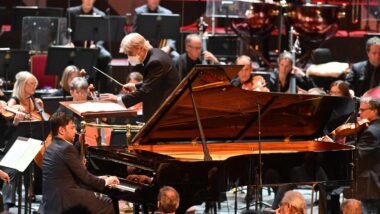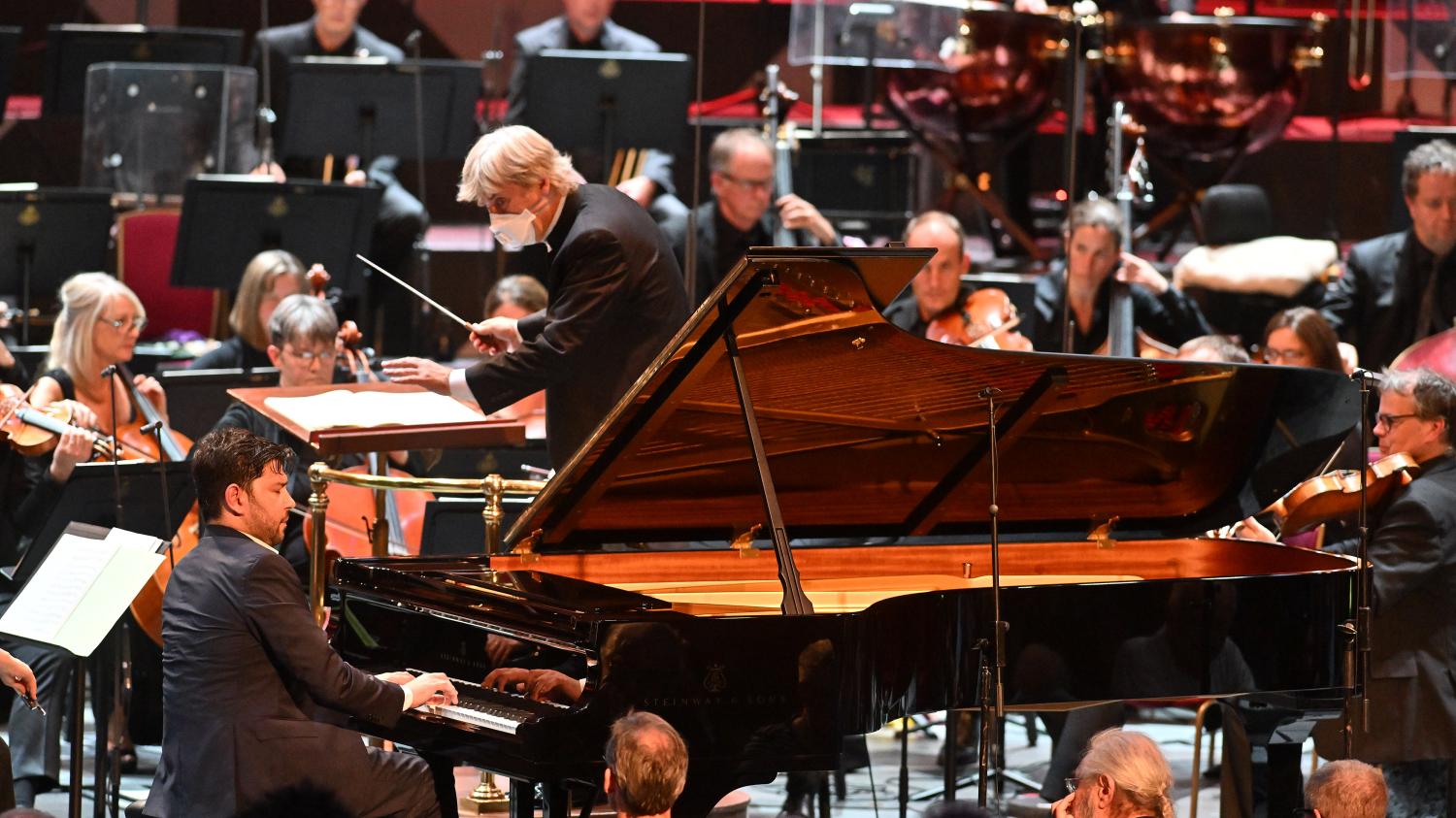
 United Kingdom BBC Proms 2022 [20], Prom 41 – Ravel, Beethoven, Nielsen: Behzod Abduraimov (piano), Elizabeth Watts (soprano), Benjamin Appl (baritone), BBC Scottish Symphony Orchestra / Thomas Dausgaard (composer). Royal Albert Hall, London, 17.8.2022. (CK)
United Kingdom BBC Proms 2022 [20], Prom 41 – Ravel, Beethoven, Nielsen: Behzod Abduraimov (piano), Elizabeth Watts (soprano), Benjamin Appl (baritone), BBC Scottish Symphony Orchestra / Thomas Dausgaard (composer). Royal Albert Hall, London, 17.8.2022. (CK)

Ravel – La valse
Beethoven – Piano Concerto No.1 in C major
Nielsen – Symphony No.3, ‘Sinfonia espansiva’
This was one of those concerts that takes off after the interval. Almost literally: Thomas Dausgaard strode onto the platform, the music (Nielsen’s Third Symphony) already coursing through his veins, leaping onto the podium and detonating an accelerating volley of unison As in a single movement, propelling us straight into the exhilarating waltz of Nielsen’s Allegro.
The concert had begun with another waltz – Ravel’s La Valse – of very different character, gradually emerging from ghostly beginnings into a ballroom scene of gaudy – some would say tawdry – magnificence. It was given an atmospheric performance, its final ruinous collapse aptly shocking. For me – others will disagree – it sits awkwardly as a concert opener, for all its brilliance.
Ravel’s waltz imagines Vienna dancing on the edge of a volcano as the Habsburg Empire disintegrates. Beethoven’s First Piano Concerto took us back more than a century to the city when the young composer was beginning to make his mark. There was much to admire in the playing of the young Uzbek pianist Behzod Abduraimov: crisp and on point in the outer movements, meditative in the slow movement. What was missing was a sense of personality and playfulness, the lightness and wit that the music deserves (and gets in the hands of pianists such as Leif Ove Andsnes). There was no suggestion in the second subject of the finale that Beethoven has wandered into a fairground. Nevertheless, Abduraimov is clearly a fine pianist: his encore (from Prokofiev’s Romeo and Juliet) gave ample evidence of his virtuosity.
And so to the Allegro of Nielsen’s Espansiva: the music’s energy, vitality and good humour (guffawing horns) carrying all before it. When the flutes and clarinets introduce a quieter episode we know that the energy is still there, waiting to break out again – which it does, driving the movement to its conclusion in ever-expanding confidence and joy.
The slow movement brings expansiveness of another kind, conjuring limitless natural vistas, its calm breadth of utterance punctuated by fervent chorales in the strings. The hall played its part, standing in for Nielsen’s wide-open spaces: most memorably when the orchestra settled gently on a glowing E flat major chord and the two wordless voices – soprano and baritone – called to each other from opposite sides of the topmost gallery, their melismas floating far above our heads. I cannot imagine this music being better sung than it was here by Elizabeth Watts and Benjamin Appl; nor can I imagine a setting that could provide the audience with a greater experience of it.
Nielsen – so Robert Simpson tells us – thought of the scherzo as ‘the work’s heartbeat’. The energy returns, driving the music towards D major – the key in which the bold, full-hearted melody of the finale is launched. It is a wonderful tune: robust, forthright, healthy (so much of Nielsen’s music seems to take us outdoors, as Dvořák’s does). Nielsen is not Beethoven, embracing the millions: but his music, like Beethoven’s, is unconquerably humane. Music of the earth, perhaps, rather than of the spheres. The orchestra played out of their skins: the strings lithe, supple, fervent as occasion demanded, woodwinds keen and tangy, brass magnificent (especially the four trombones).
Before the concert began I was comparing notes with two Arena Prommers, Howard and Andrew – both experienced fell-walkers – about our favourite Lake District routes. It occurs to me that the elated stride of Nielsen’s ‘espansiva’ – not Mahler setting out across the fields in his First Symphony, not Richard Strauss starting up the Zugspitze in his Alpine Symphony – is the music that best expresses the heady mix of physical energy and spiritual joy that all fell-walkers know: qualities that found full expression in this fine performance by Dausgaard and the BBC SSO.
Chris Kettle
